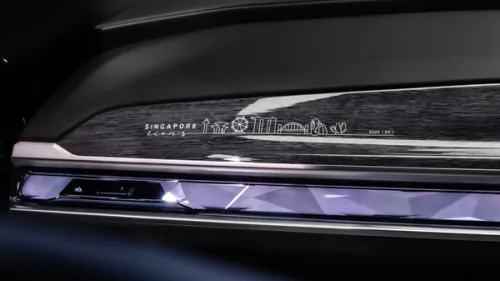The BMW Group Explores The Future of Vehicle Safety
As an innovation leader in the premium segment, the BMW Group is firmly committed to the vision of accident-free mobility – not least because road safety is first and foremost about protecting human life. In order to prevent accidents through early corrective action, systems are required which support and facilitate the driving task. Four years ago, leading vehicle manufacturers and suppliers, universities, institutes of applied science and research establishments from throughout Germany teamed up to work on the research initiative “Cooperative Vehicle Safety (Ko-FAS)”. The aim of this project was to significantly improve road safety, with an attendant reduction in the number of road traffic accidents and fatalities. The approach centered on accurate detection of traffic environments using cooperative sensing and perception, comprehensive situation assessment to precisely evaluate collision risks, and subsequent activation of appropriate advance protection measures. The results have now been presented at the final Ko-FAS presentation in Aschaffenburg.


The Ko-FAS project, which was subsidized by the Federal Ministry of Economics and Technology, comprised the three subprojects Ko-TAG, Ko-PER and Ko-KOMP. BMW Group Research and Technology took a lead role in the Ko-TAG and Ko-PER subprojects.
The aim of Ko-TAG was to further improve cooperative transponder technologies, with a view not only to protecting pedestrians but also cyclists as well as to supporting extremely accurate vehicle self-localization.
For this purpose pedestrians and cyclists were equipped with miniaturized transmitting and receiving devices (transponders). When they receive an interrogation signal from the test vehicle’s onboard locating system, these transponders send back information which indicates, among other things, the type of road user wearing the transponder and the position of the road user relative to the vehicle. The transponder is identified by means of a code which is frequently and randomly changed, making it impossible to link the transponder to its wearer and ensuring that data protection requirements are met.
Effectiveness studies demonstrate that the transponder system investigated in this project offers high potential for mitigating or even preventing accidents, by warning drivers of hazards much earlier and in a more effective way.
In the Ko-PER project, the specialists from the BMW Group researched cooperative perception techniques suitable for use in parallel traffic and at intersections to improve the driver’s foresight in traffic. The aim of the Ko-PER project was to provide the fullest possible traffic detection, based on the cooperative exchange of information between vehicles. At accident hot spots this information can be supplemented with infrastructure-based information. In these various ways it is possible to eliminate the effect of obstructions in both the driver’s and the vehicle sensors’ field of view. Drivers can therefore be alerted to hazards at an early stage, allowing them to take appropriate action.
The results of the research project show that, in future, use of cooperative transponder technologies (Ko-TAG) in combination with cooperative perception (Ko-PER) could bring important benefits for road safety.
Credits: Oneshift News Team


Get the Best Price for your used car
from 500+ dealers in 24 hours

- Convenient and Hassle-Free
- Consumer Protection
Transparent Process
With No Obligation








